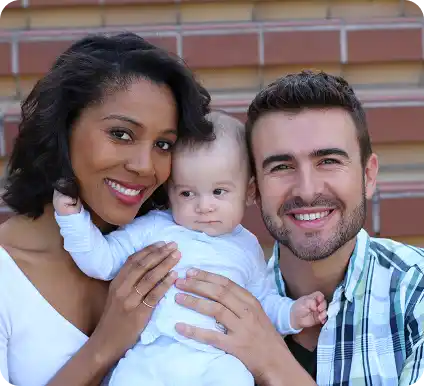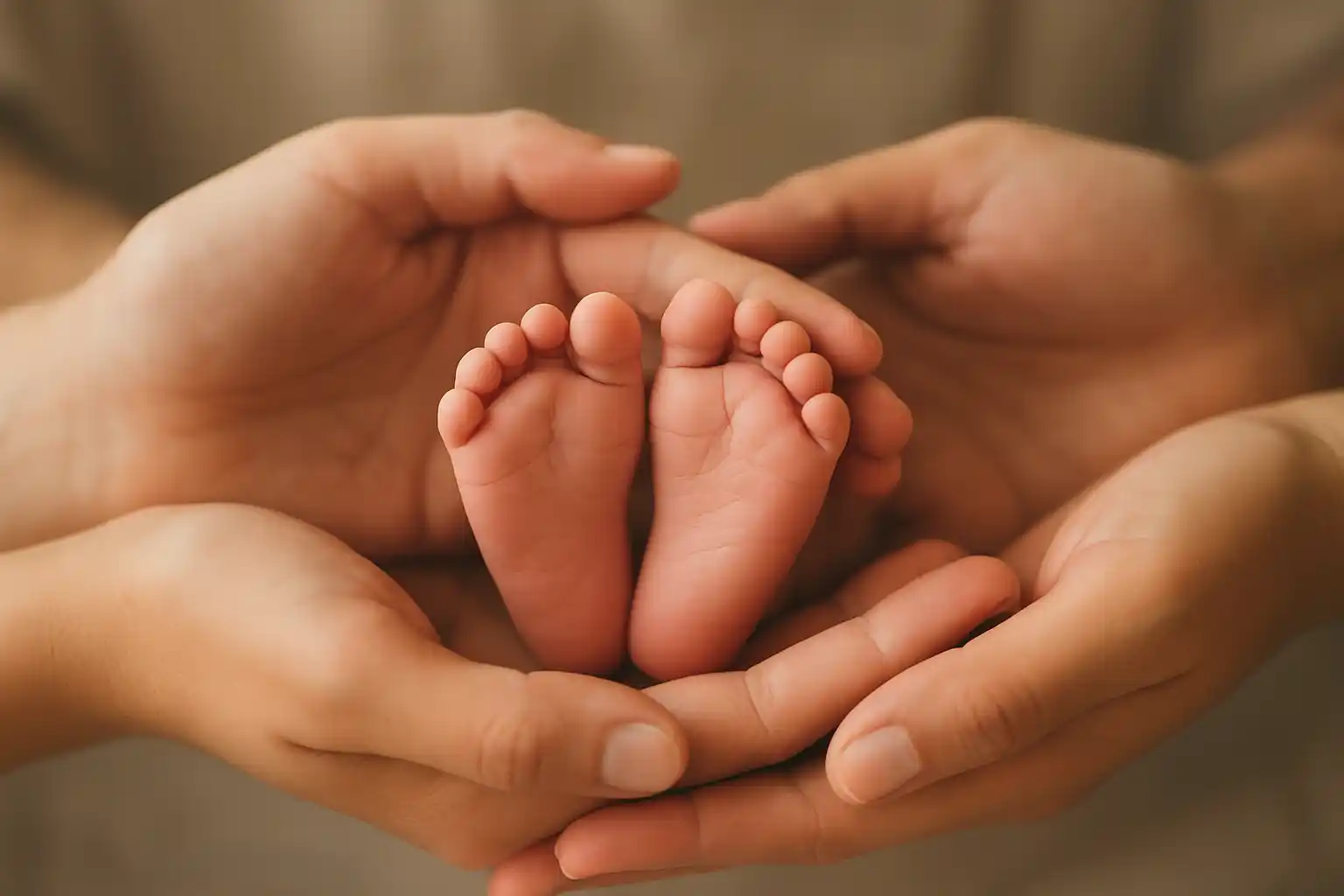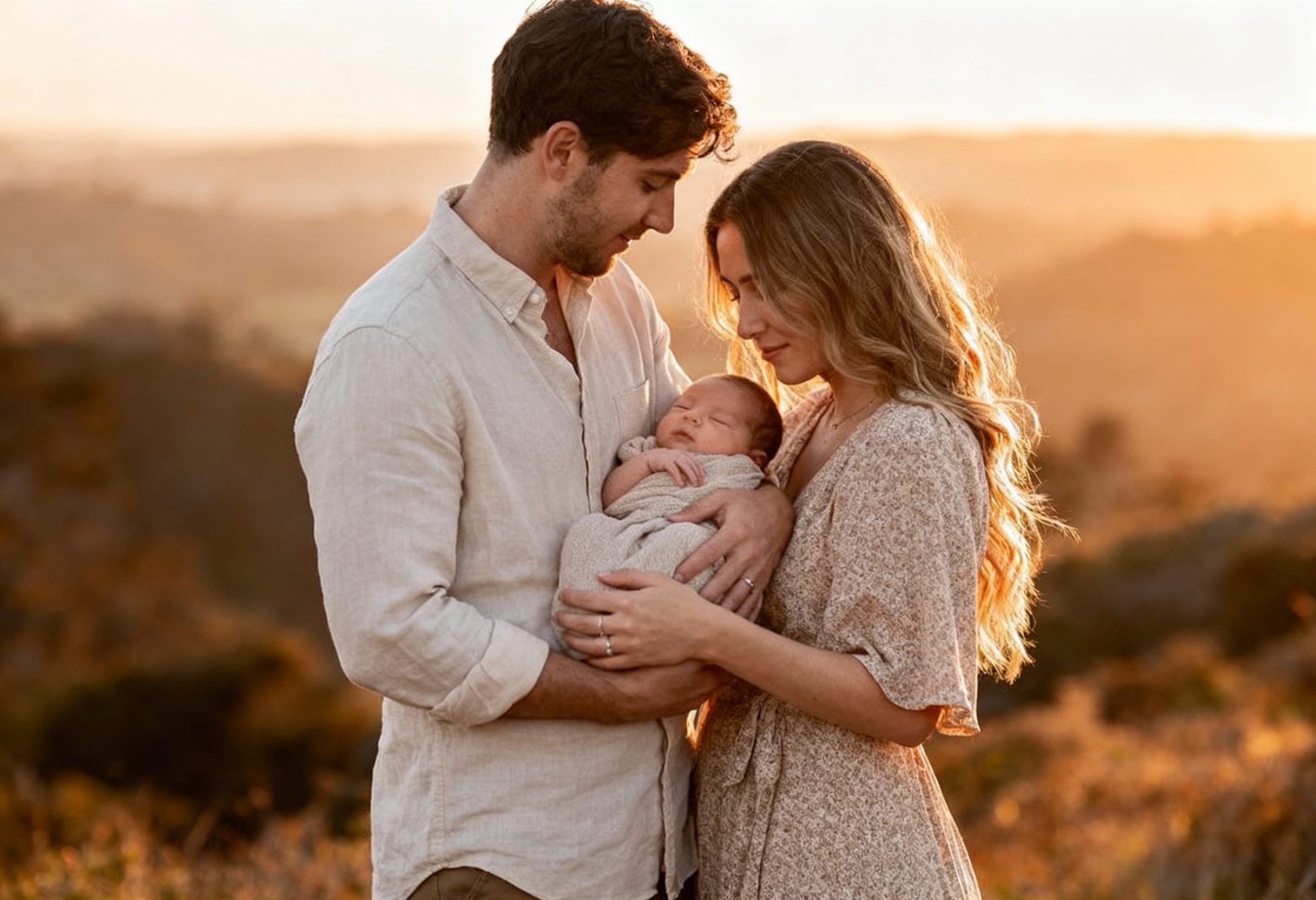Post Birth Adoption: When Initial Support Systems Fail

In a recent episode of Choosing Adoption, host Donna Pope explores with Kenia how post birth adoption decisions develop when initial support systems prove inadequate. Kenia's experience demonstrates that some women need time to fully understand their circumstances before making informed decisions about their children's futures. Kenia's adoption journey challenges assumptions about when women make adoption decisions.
Unlike birth mothers who choose adoption during pregnancy, Kenia initially planned to parent and only considered adoption when promised support from the birth father and family failed to materialize during her son's first months of life. The Adoption Network reports that approximately 95% of domestic infant adoptions are considered open adoptions, but Kenia's story shows how these arrangements can work even when decisions are made after birth, requiring flexible approaches from agencies and adoptive families.
When Financial Support Isn't Enough
Kenia's experience illustrates the difference between financial support and genuine presence during early parenthood. The birth father provided money while working out of state, but Kenia emphasizes that financial contributions couldn't replace the physical and emotional support she needed as a new mother.
The U.S. Census Bureau reports that mothers experience an average earnings drop of $1,861 in the first quarter after birth, making practical support systems essential for single mothers. However, Kenia's story demonstrates that financial assistance alone doesn't address the comprehensive needs of new mothers.
Her concern about explaining the birth father's absence to her son as he grew older reflects the long-term impact of inadequate emotional support. Kenia recognized that telling her child his father was present only through money wouldn't provide the foundation a growing child needs.
Family Support Complications
Kenia's relationship with her mother during this period highlights how family dynamics can complicate support systems. While her mother would watch the baby, she would become overwhelmed when Kenia needed to leave for work, creating additional stress rather than reliable childcare support.
Mount Sinai research shows that pregnancy-related expenses can create significant financial burden for families, but Kenia's experience demonstrates that emotional and practical support gaps can be equally challenging for new mothers trying to establish stability.
The lack of strong mother-daughter communication patterns meant Kenia felt unable to discuss her struggles openly, leading to isolation during a critical time when she needed guidance and support.
Post Birth Adoption Research and Support
Kenia's research process demonstrates the thoroughness required for post birth adoption decisions. She prioritized finding legitimate agencies and ensuring adoptive families could provide the stable, intact family structure she wanted for her son. Her Google searches and verification efforts show the careful consideration involved in these decisions.
American Adoptions explains that adoption processes must be flexible to accommodate different circumstances and timing, which is particularly important for post-birth adoption situations where decisions develop after initial parenting attempts.
Kenia's emphasis on open adoption arrangements reflects her continued care for her son and desire to ensure his wellbeing. She wanted ongoing knowledge that he was safe and thriving, demonstrating that post birth adoption decisions often come from deep maternal love rather than abandonment.
Building Trust with Adoptive Families
Kenia's process of selecting an adoptive family focused heavily on their character and stability. Learning that the adoptive mother had provided foster care impressed her because it demonstrated a history of caring for children in need. This experience suggested the family would be nurturing and capable.
FindLaw reports that about two-thirds of domestic infant adoptions experience continued post-placement contact, and Kenia's relationship with her son's adoptive family exemplifies how these arrangements can develop trust over time.
Her transition from agency-mediated communication to direct contact with the adoptive family represents the building of a genuine relationship rather than just procedural communication. When the adoptive mother provided her personal phone number, Kenia felt it demonstrated earned trust and acceptance.
Addressing Stigma and Misconceptions
Kenia's experience with family accusations of "selling" her baby reflects common misconceptions about adoption that create additional emotional burden for birth mothers. Her clear statement that no amount of money could buy her child demonstrates the love-based nature of her decision.
According to multiple sources, birth mother expenses in adoption are court-approved living supports, not payments for children, but public misunderstanding of these legal distinctions can create shame and judgment for families making difficult decisions.
Kenia's response that money comes and goes but a child's love is permanent reveals her understanding of what truly matters in parent-child relationships. Her decision was based on providing her son with the stability and family structure she couldn't offer at that time.
The Reality of Post Birth Adoption Emotions
Kenia's description of meeting her son after placement illustrates the complex emotions involved in post-birth adoption relationships. Seeing him as a walking toddler rather than the baby she had placed created both joy and sadness, but ultimately reinforced her sense that he was thriving.
Research published in PMC indicates that open adoption arrangements are dynamic, with different levels of contact associated with different experiences and satisfaction levels. Kenia's ongoing relationship demonstrates how post-birth adoption can maintain important connections while providing children with stable homes.
Her ability to maintain direct communication with the adoptive family and plan regular visits shows how these arrangements can work successfully when built on mutual respect and genuine care for the child's wellbeing.
Impact on Other Children
Kenia's consideration of how to explain the adoption to her older son Manny reflects the complexity of post-birth adoption decisions for families with multiple children. Her concern about protecting Manny from feeling insecure about his own place in the family demonstrates thoughtful parenting.
The fact that Manny continues to refer to his placed brother as family suggests that children can understand these arrangements when handled appropriately. Kenia's plan to provide fuller explanations as Manny matures shows her commitment to maintaining family connections while protecting his emotional well-being.
Texas Adoption Center notes that adoption decisions affect entire family systems and require careful consideration of all children involved, which Kenia's approach demonstrates.
Long-term Family Relationships
Kenia's subsequent pregnancy and improved relationship with her mother illustrate how family dynamics can evolve after adoption experiences. Her mother's increased support during her third pregnancy suggests learning and growth within the family system.
The contrast between her isolated experience during the adoption period and her current support demonstrates how circumstances can change over time. However, it also validates her earlier decision when support wasn't available but was desperately needed.
Lifetime Adoption research shows that birth mothers who receive appropriate support and counseling have better long-term outcomes, which Kenia's experience with agency counseling support confirms.
Supporting Post Birth Adoption Decisions
Kenia's advice to other mothers emphasizes the importance of being certain about adoption decisions while recognizing that family support patterns may not be what they initially appear. Her suggestion that women communicate more openly with family members reflects lessons learned from her own experience.
Her recognition that she might have avoided adoption if she had known about potential family support demonstrates how important clear communication can be. However, it also validates that her decision was appropriate given the information and support available at the time.
The National Council for Adoption notes that effective adoption support should be individualized and responsive to each family's circumstances, which is particularly important for post-birth adoption situations where decisions develop gradually.
Moving Forward After Post Birth Adoption
Kenia's ongoing relationship with her placed son and his adoptive family demonstrates how post birth adoption can create expanded family networks rather than just separation. Her ability to maintain connection while allowing his adoptive parents to provide daily care shows the balance possible in these arrangements.
Her growth as a parent and person since the adoption, including improved family relationships and successful parenting of her other children, suggests that adoption decisions can be part of overall family healing and development.
Article published on The Atlantic mentions that, approximately 18,000 independent adoptions occur annually, representing diverse pathways to family formation that include post birth decisions when initial support systems prove inadequate.
Ready to learn more about post birth adoption support and real stories from the adoption community? Subscribe to Choosing Adoption for conversations that explore how families can find solutions when traditional support systems fall short.
Follow or Subscribe to Choosing Adoption on your favorite platforms:
Website | YouTube | Twitter/X | Instagram
Follow Donna Pope
#Adoption #AdoptionJourney #BirthMother #OpenAdoption #AdoptionStories #BirthMotherAutonomy #RespectBirthMothers #AdoptionChoices #AdoptionSupport #AdoptionAdvocacy #AdoptionPolicy #FamilyThroughAdoption #EveryStoryMatters #AdoptionCommunity #AdoptionAwareness #EmpowerBirthMothers #AdoptionSupportNetwork #WomenSupportingWomen #EthicalAdoption #AdoptionLove









Comments